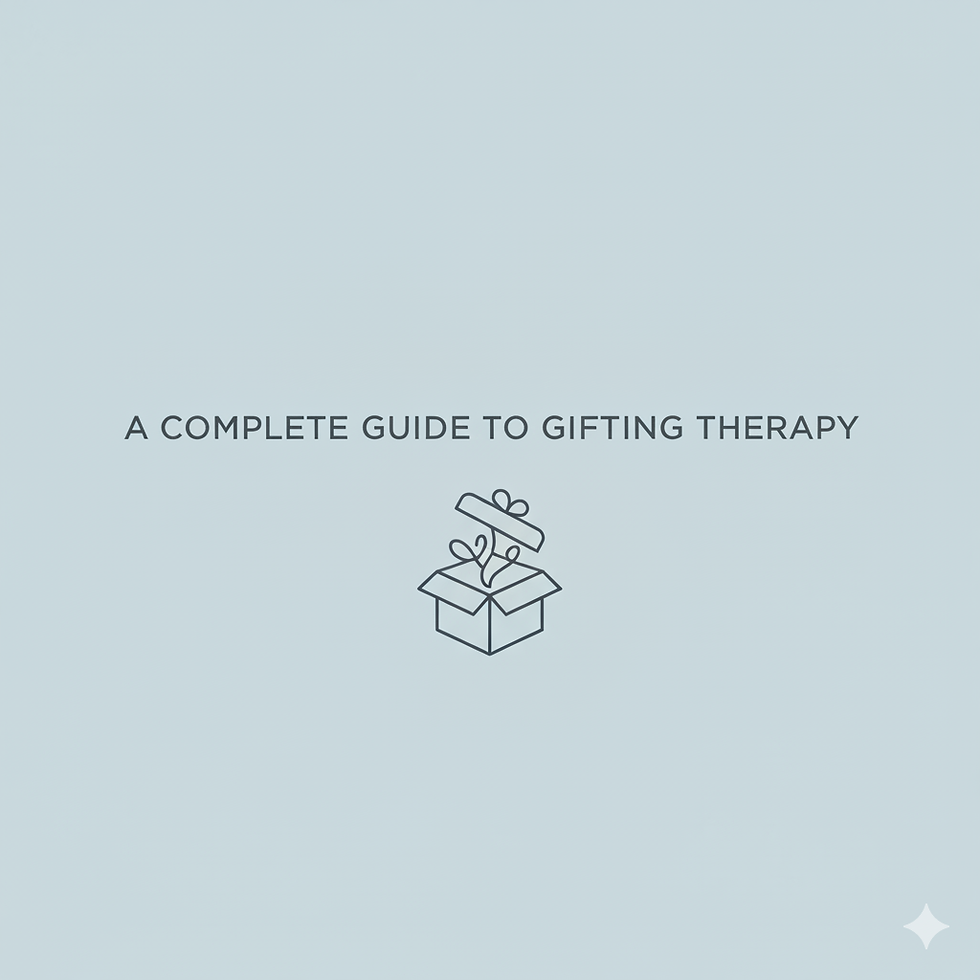Offline or Online Therapy?
- Rimjhim Agrawal

- Apr 16, 2024
- 3 min read
The decision to pursue therapy is a significant step towards improving mental health and well-being. However, with the rise of online therapy platforms, individuals now have the option to access therapy from the comfort of their homes. In this blog, we'll explore the pros and cons of offline and online therapy to help you make an informed decision about which option is best for you.
Offline Therapy: Traditional Face-to-Face Counseling
Pros:
Personal Connection: Offline therapy allows for face-to-face interactions with a therapist, fostering a sense of personal connection and rapport.
Non-verbal Cues: In-person sessions enable therapists to observe non-verbal cues such as body language and facial expressions, enhancing communication and understanding.
Privacy and Confidentiality: Offline therapy sessions are conducted in a private setting, ensuring confidentiality and discretion.
Cons:
Accessibility: Offline therapy may be less accessible for individuals living in remote areas or those with limited mobility.
Time and Travel Constraints: Attending in-person therapy sessions requires time and effort for travel, which may be challenging for busy schedules or individuals with transportation limitations.
Stigma: Some individuals may feel self-conscious or stigmatized about seeking therapy in a traditional setting, deterring them from seeking help.
Online Therapy: Convenient and Accessible Counseling
Pros:
Convenience: Online therapy offers greater flexibility and convenience, allowing individuals to attend sessions from anywhere with an internet connection.
Accessibility: Online therapy removes geographical barriers, making therapy accessible to individuals living in remote areas or those with mobility issues.
Anonymity: Online therapy provides a level of anonymity that may appeal to individuals who are hesitant to seek therapy in person due to stigma or privacy concerns.
Cons:
Limited Non-verbal Communication: Online therapy platforms may lack the ability to fully capture non-verbal cues, potentially impacting the therapeutic process.
Technology Issues: Technical glitches or connectivity issues may disrupt online therapy sessions, leading to frustration or interruptions in treatment.
Security Concerns: While online therapy platforms prioritize security and confidentiality, there is a risk of data breaches or privacy violations that may compromise sensitive information.
Choosing the Right Option for You
Consider the following factors when deciding between offline and online therapy:
Comfort Level: Reflect on your comfort level with technology and online communication. If you prefer face-to-face interactions and value personal connection, offline therapy may be the better option for you. However, if you are comfortable with online platforms and value convenience, online therapy may be a suitable alternative.
Accessibility: Assess your access to offline therapy services in your area and consider any logistical challenges such as transportation or scheduling conflicts. If offline therapy is not readily available or accessible to you, online therapy may offer a viable solution.
Treatment Needs: Consider your specific treatment needs and goals for therapy. Certain therapeutic modalities or interventions may be more effective in an offline or online setting, so it's essential to discuss your preferences with a therapist to determine the best approach for you.
Both offline and online therapy offer valuable opportunities for support and healing, each with its unique advantages and considerations. By weighing the pros and cons and considering your individual preferences and needs, you can make an informed decision about which option aligns best with your goals for therapy. Whether you choose offline or online therapy, remember that the most important factor is finding a therapist who understands and supports you on your journey towards improved mental health and well-being.
If you feel online therapy works for you, you can book a traial session at www.youremotionalwellbeing.org



Comments